If you drop something in your engine bay, it can cause damage to various components and potentially lead to engine malfunctions, requiring repairs or replacements. This can result in costly maintenance and impact the overall performance and safety of your vehicle.
Therefore, it is crucial to take immediate action to retrieve the item and assess any potential damage to prevent further complications.
Understanding Engine Bay Components
Dropping something in your engine bay can be a frightening experience. Suddenly, you’re worried about potential damage, costly repairs, and the overall safety of your vehicle. That’s why it’s important to understand the different components in your engine bay and how they work together.
By familiarizing yourself with the engine components and auxiliary components, you can better comprehend the potential consequences of dropping something in your engine bay.
Engine Components
When it comes to understanding engine components, it’s essential to grasp the vital role each one plays in the overall functionality of your vehicle. Some of the key engine components you should be familiar with include:
- Pistons: Pistons move up and down within the engine cylinder, compressing the air and fuel mixture needed for combustion.
- Crankshaft: The crankshaft converts the linear motion of the pistons into rotational motion, which drives the wheels of the vehicle.
- Camshaft: The camshaft controls the opening and closing of the engine’s intake and exhaust valves, ensuring proper fuel and air flow.
- Valves: Valves regulate the flow of fuel and air into the engine and the release of exhaust gases.
- Spark Plugs: Spark plugs ignite the air and fuel mixture in the combustion chamber, initiating the power stroke.
Auxiliary Components
In addition to the engine components, your engine bay also contains various auxiliary components that assist in the proper functioning of your vehicle. Some notable auxiliary components include:
- Battery: The battery provides the necessary electrical power to start the engine and run electrical systems when the engine is off.
- Alternator: The alternator charges the battery and supplies power to the electrical systems while the engine is running.
- Radiator: The radiator helps to cool down the engine by dissipating heat from the coolant.
- Water Pump: The water pump circulates coolant throughout the engine, preventing it from overheating.
- Air Filter: The air filter removes impurities from the air entering the engine, ensuring clean combustion.
Understanding these auxiliary components can help you assess the potential impact of dropping something in your engine bay. For example, if you accidentally drop a small object near the battery terminals, it may cause a short circuit, leading to electrical issues or even a dead battery.
On the other hand, dropping something into the radiator may obstruct the cooling system, resulting in engine overheating.
Ultimately, having a clear understanding of the engine and auxiliary components in your engine bay allows you to comprehend the potential risks and necessary steps to address any accidental objects dropped in this critical area.
Safety Hazards Of Dropping Objects In The Engine Bay
Dropping objects in the engine bay of your car can have serious safety hazards. These hazards can range from fire risks to electrical damage and fluid leaks.
It is important to understand the potential consequences of dropping something in the engine bay in order to prevent accidents and maintain the proper functioning of your vehicle.
Fire Hazard
One of the primary safety hazards of dropping objects in the engine bay is the risk of a fire. The engine bay contains various components that generate heat, such as the exhaust manifold, ignition system, and electrical wiring.
If a dropped object, such as a loose tool or a flammable substance, comes into contact with these hot components, it can lead to a fire.
To mitigate this risk, it is crucial to keep the engine bay clean and free from any debris. Regularly inspect the engine bay and remove any foreign objects. Additionally, ensure that all flammable materials are stored away from the engine bay to avoid accidental ignition.
Electrical Damage
Dropped objects can also pose a risk of electrical damage in the engine bay. The engine bay is filled with electrical components, such as the battery, alternator, and various wiring systems.
If a foreign object falls and damages any of these components or disrupts the wiring connections, it can result in electrical malfunctions or even complete system failure.
To prevent electrical damage, it is important to handle objects with care when working around the engine bay. Avoid dropping tools or other objects onto exposed wires or directly onto electrical components.
If you suspect any electrical damage after an object has been dropped, it is recommended to have a professional mechanic inspect and repair the affected areas.
Fluid Leaks
An often overlooked hazard of dropping objects in the engine bay is the potential for fluid leaks. The engine bay contains various fluids, such as engine oil, coolant, and brake fluid.
Dropping an object onto a fluid reservoir or causing damage to hoses and lines can result in leaks, leading to reduced performance or even complete system failure.
To avoid fluid leaks, it is important to exercise caution when handling objects near fluid-filled components in the engine bay. Be mindful of the placement of tools and parts to prevent accidental damage.
If you notice any fluid leaks after dropping an object, it is advisable to have a qualified technician inspect and repair the affected areas.
Potential Damage To Engine Components
Dropping something in your engine bay can lead to various types of damage to critical engine components. It is essential to understand the potential risks associated with this situation to prevent costly repairs in the future.
In this section, we will discuss the potential damage to engine components, including belts and pulleys, clogged intake or exhaust systems, and the cooling system.
Damage To Belts And Pulleys
Dropping an object, such as a wrench or a small part, into your engine bay can cause significant damage to the belts and pulleys.
These components play a vital role in the proper functioning of your engine, driving various systems like the alternator, power steering pump, and air conditioning compressor. When a foreign object gets caught in the belts or pulleys, it can lead to:
- Belt damage: The object can cause tears or fraying in the belt, reducing its effectiveness and potentially causing it to snap.
- Pulley misalignment: The object may knock the pulleys out of alignment, which can cause excessive wear on the belts, leading to premature failure.
- Belt slippage: A foreign object can disrupt proper tensioning of the belts, causing them to slip on the pulleys. This can result in poor performance of the systems they drive.
Clogged Intake Or Exhaust Systems
Dropping an item into your engine bay can also lead to clogs in the intake or exhaust systems. These systems control the flow of air and exhaust gases through your engine, ensuring optimal performance and fuel efficiency. If an object obstructs the intake or exhaust system, it can lead to:
- Restricted airflow: The object can disrupt the smooth flow of air into the engine, reducing its efficiency and potentially causing rough idling or acceleration issues.
- Increased exhaust backpressure: If the object ends up in the exhaust system, it can create a blockage, causing higher pressure inside the system. This can negatively impact engine performance and result in reduced power output.
- Overheating: If the object blocks the radiator grille or cooling fan, it can impede airflow to the cooling system, leading to overheating of the engine and potential damage to critical components.
Damaged Cooling System
A dropped object can cause damage to the cooling system, which is responsible for regulating the engine’s temperature. If the object comes into contact with key cooling system components, it can result in:
- Radiator damage: The object may puncture or damage the radiator, resulting in coolant leaks and compromised cooling efficiency.
- Water pump issues: If the dropped object damages the water pump, it can cause leaks or driveability problems, leading to inadequate coolant circulation and potential overheating.
- Hose or pipe damage: The object can potentially cause tears or cracks in the hoses or pipes connected to the cooling system, leading to coolant leaks and overall system inefficiency.
Remember, if you accidentally drop something in your engine bay, it’s crucial to remove it carefully and inspect for any potential damage. If you notice any issues or are unsure about the extent of the damage, it’s best to consult a professional mechanic.
Effects On Auxiliary Components
Dropping something in your engine bay can have several effects on the auxiliary components of your vehicle. These components play a crucial role in the overall functioning of your car, and any damage caused to them can lead to various malfunctions and issues.
Electrical System Malfunctions
The electrical system of your car consist of various components such as the battery, alternator, starter motor, and wiring. These components are responsible for powering the various electrical systems in your vehicle, including the lights, radio, and power windows.
When something is dropped in the engine bay and comes into contact with the electrical system, it can cause short circuits or damage the wiring.
This can result in electrical system malfunctions, such as flickering lights, a dead battery, or issues with the car’s electronic control modules.
Air Conditioning Issues
The air conditioning system in your car is designed to keep you comfortable during hot weather by cooling the air inside the cabin. It relies on various components, including the compressor, condenser, and refrigerant lines, to function properly.
If something falls into the engine bay and damages any of these components, it can lead to air conditioning issues. This may include a loss of cooling capability, unusual noises coming from the air conditioning system, or even a complete failure of the system.
Braking And Steering Problems
The braking and steering systems are essential for the safe operation of your vehicle. They rely on a complex network of components that work together to provide responsive braking and steering control.
If an object accidentally drops into the engine bay and interferes with any of these components, it can result in braking and steering problems. This could include reduced braking power, a spongy brake pedal, difficulty in turning the steering wheel, or even a complete loss of control.
To avoid these issues, it is crucial to be cautious when working near the engine bay and to keep the area clean and clutter-free. If you do accidentally drop something, it is best to consult a professional mechanic to assess any potential damage and ensure the proper functioning of your vehicle.
Actions To Take If You Drop Something In The Engine Bay
Accidents happen, and sometimes you may accidentally drop something in your engine bay while working on your car.
Whether it’s a small tool, a bolt, or any other object, it’s important to take immediate action to prevent any potential damage to your engine or other components. Here are some steps you should follow if you find yourself in this situation:
Turn Off The Engine
If you drop something in your engine bay, the first thing you should do is turn off the engine as quickly as possible. This is crucial to prevent the dropped item from causing any further damage.
By cutting off the power, you minimize the risk of the object getting caught in moving parts or interfering with the engine’s functioning. Use the key to turn off the engine or press the power button if your vehicle has a push-start ignition system.
Inspect For Visible Damage
Once the engine is off, take a moment to inspect the area where the object fell. Look for any visible signs of damage, such as loose wires, broken hoses or belts, or any other components that may have been dislodged or affected.
It’s essential to identify any immediate problems that require attention before proceeding further.
Consult A Professional Mechanic
If you notice any damage or are unsure about the safety of your vehicle, it’s best to consult a professional mechanic. They have the expertise and knowledge to assess the situation accurately and recommend the necessary repairs or replacements.
A mechanic can also help identify any potential hidden damage that may not be immediately visible to an untrained eye. Don’t hesitate to seek professional assistance to ensure the integrity of your engine and prevent any potential long-term issues.
| Actions to Take If You Drop Something in the Engine Bay: |
|---|
| 1. Turn Off the Engine: Immediately switch off the engine to prevent further damage. |
| 2. Inspect for Visible Damage: Look for any visible signs of damage or dislodged components in the engine bay. |
| 3. Consult a Professional Mechanic: Seek the expertise of a mechanic to assess any damage and recommend necessary repairs or replacements. |
Preventing Objects From Falling Into The Engine Bay
When it comes to vehicle maintenance and care, one area that often gets overlooked is the engine bay. However, keeping this essential part of your car clean and free of debris is crucial to its long-term performance.
One of the common issues that can occur is dropping objects into the engine bay. This can lead to serious damage, not to mention the inconvenience of having to retrieve the fallen item. But fear not!
There are several effective ways to prevent objects from falling into the engine bay, ensuring the smooth operation of your vehicle.
Using Tools And Accessories
One of the simplest and most effective methods to prevent objects from falling into the engine bay is to use tools and accessories designed for this purpose. Several handy options are available that allow you to secure small items or create a barrier, keeping them away from critical engine components.
Here are some tools and accessories you can consider:
- Magnetic Trays: These are an excellent choice for preventing small metallic objects, such as screws or bolts, from falling into the engine bay. The strong magnets hold them securely in place, reducing the risk of them causing damage.
- Flexible Grabber Tool: If you accidentally drop something into the engine bay, a flexible grabber tool will be your savior. With its long and bendable shaft, you can easily retrieve the fallen item without any hassle.
- Tool Roll-Up Pouches: These pouches are perfect for securing small hand tools. By organizing and fastening them tightly, you can prevent tools from rolling off surfaces and potentially falling into the engine bay.
Creating A Protective Barrier
In addition to using tools and accessories, creating a protective barrier is another effective way to prevent objects from falling into the engine bay. By installing physical barriers or covers, you can significantly reduce the chances of something accidentally dropping in.
Consider the following methods:
- Mesh Screen: Mounting a mesh screen over openings, such as the radiator or air intake, can be a simple yet effective solution. The tightly woven mesh will filter out larger objects, preventing them from entering the engine bay.
- Plexiglass Cover: For a more comprehensive protective measure, you can install a clear plexiglass cover over the engine bay. This transparent barrier not only keeps debris at bay but also allows for easy visibility and inspection of the engine.
Maintaining A Clean Engine Bay
Lastly, an essential step in preventing objects from falling into the engine bay is to maintain a clean and organized space. Regularly cleaning the engine bay removes debris, reducing the risk of objects getting trapped or accidentally dropped.
Here are some tips for maintaining a clean engine bay:
- Remove Leaves and Debris: Clear out any leaves, twigs, and other debris that may accumulate in the engine bay, especially after driving in wooded areas or during fall season.
- Wipe Surfaces Clean: Use a damp cloth or a suitable engine degreaser to wipe down surfaces and remove any dirt or grime.
- Organize Cables and Hoses: Keep cables and hoses neatly organized and secured to prevent them from coming loose or getting caught on objects.
- Inspect Regularly: Regularly inspect the engine bay for any loose or damaged parts that may pose a risk of falling into the engine.
By following these preventative measures, you can ensure the safety and longevity of your engine, while also saving yourself the trouble of retrieving lost items from the engine bay. So, take the time to implement these strategies and enjoy a worry-free driving experience!
Frequently Asked Questions Of What Happens If You Drop Something In Your Engine Bay
What To Do If You Drop Something In The Engine Bay?
If you drop something in the engine bay, take caution and follow these steps: 1. Turn off the engine and give it time to cool down. 2. Use a flashlight to locate the item and assess any possible damage. 3.
Use long pliers or a magnetic tool to retrieve the object. 4. Check for any loose connections or damages before starting the engine. 5. If unsure or concerned, consult a professional mechanic for assistance.
What Happens If You Drop A Screw In Engine Bay?
If you drop a screw in the engine bay, it can cause damage to various components. It is important to retrieve the screw carefully to prevent any potential harm to the engine.
Is It Okay To Wet Your Engine Bay?
Wetting your engine bay is generally not recommended as it can cause damage to electrical components and may result in engine misfires. It’s best to avoid direct contact with water and instead focus on regular maintenance and cleaning using safe methods.
Can I Spray Down My Engine Bay?
Yes, you can spray down your engine bay, but there are important precautions to consider. Avoid spraying directly at sensitive components, use low-pressure or gentle streams, cover or protect electrical parts, and allow the engine to cool down before cleaning.
Regular maintenance is crucial for optimal performance.
Conclusion
Dropping something in your engine bay can have serious consequences for your vehicle’s performance and safety. It’s crucial to take immediate action to prevent further damage, such as retrieving the object if possible or seeking professional assistance.
Remember, small objects can cause big problems, so always exercise caution and keep your engine bay clutter-free.
Stay proactive and protect your engine’s health for smooth and hassle-free driving.


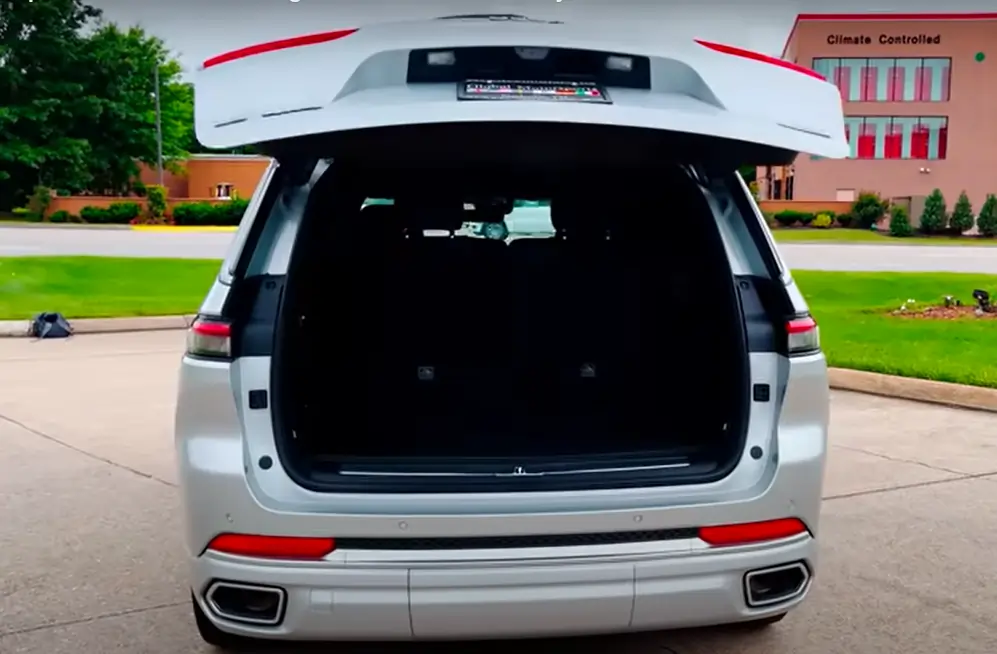


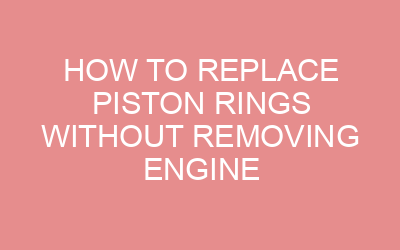


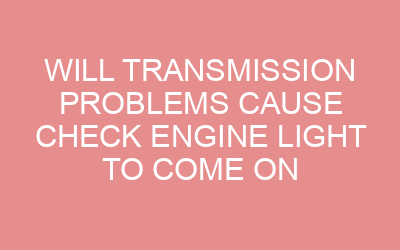
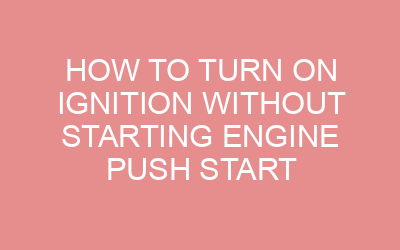



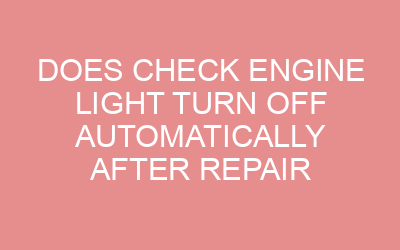
Leave a Reply